Filter by
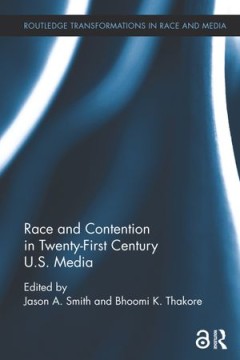
Race and Contention in Twenty-First Century U.S. Media
This volume explores and clarifies the complex intersection of race and media in the contemporary United States. Due to the changing dynamics of how racial politics are played out in the contemporary US (as seen with debates of the "post-racial" society), as well as the changing dynamics of the media itself ("new vs. old" media debates), an interrogation of the role of the media and its various…
- Edition
- -
- ISBN/ISSN
- 9781317385134
- Collation
- -
- Series Title
- -
- Call Number
- 305.8 RAC r

Screen Genealogies: From Optical Device to Environmental Medium
Against the grain of the growing literature on screens, *Screen Genealogies* argues that the present excess of screens cannot be understood as an expansion and multiplication of the movie screen nor of the video display. Rather, screens continually exceed the optical histories in which they are most commonly inscribed. As contemporary screens become increasingly decomposed into a distributed fi…
- Edition
- -
- ISBN/ISSN
- 9789048543953
- Collation
- -
- Series Title
- -
- Call Number
- 302.23 SCR s
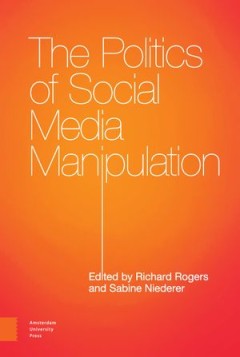
The Politics of Social Media Manipulation
Disinformation and so-called fake news are contemporary phenomena with rich histories. Disinformation, or the willful introduction of false information for the purposes of causing harm, recalls infamous foreign interference operations in national media systems. Outcries over fake news, or dubious stories with the trappings of news, have coincided with the introduction of new media technologies …
- Edition
- -
- ISBN/ISSN
- 9789048551675
- Collation
- -
- Series Title
- -
- Call Number
- 302.23 POL p
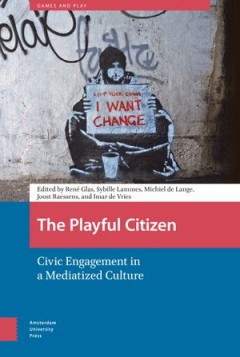
The Playful Citizen: Civic Engagement in a Mediatized Culture
In the last decade, digital media technologies and developments have given rise to exciting new forms of ludic, or playful, engagements of citizens in cultural and societal issues. From the Occupy movement to playful city-making to the gameful designs of the Obama 2008 and Trump 2016 presidential campaigns, and the rise of citizen science and ecological games, this book shows how play is a key …
- Edition
- -
- ISBN/ISSN
- 9789048535200
- Collation
- -
- Series Title
- -
- Call Number
- 302.23 PLA p
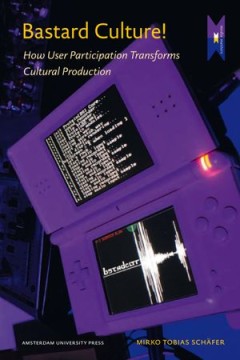
Bastard Culture! How User Participation Transforms Cultural Production
New online technologies have brought with them a great promise of freedom. The computer and particularly the Internet have been represented as enabling technologies, turning consumers into users and users into producers. Furthermore, lay people and amateurs have been enthusiastically greeted as heroes of the digital era. This thoughtful study casts a fresh light on the shaping of user participa…
- Edition
- -
- ISBN/ISSN
- 9789089642561
- Collation
- -
- Series Title
- -
- Call Number
- -
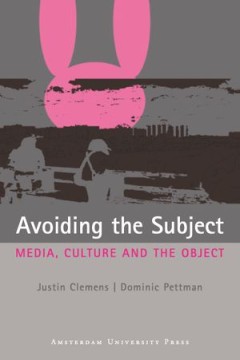
Avoiding the Subject Media, Culture and the Object
What can Roger Rabbit tell us about the Second Gulf War? What can a woman married to the Berlin Wall tell us about posthumanism and inter-subjectivity? What can DJ Shadow tell us about the end of history? What can our local bus route tell us about the fortification of the West? What can Reality TV tell us about the crisis of contemporary community? And what can unauthorized pictures of Osama Bi…
- Edition
- -
- ISBN/ISSN
- 9789053567166
- Collation
- -
- Series Title
- -
- Call Number
- -

Mobile Screens
Nanna Verhoeff’s new book is a must for anybody interested in visual culture and media theory. It offers a rich and stimulating theoretical account of the central dimension of our contemporary existence – interfacing and navigating both data and physical world through a variety of screens (game consoles, mobile phones, car interfaces, GPS devices, etc.) In the process of exploring these new…
- Edition
- -
- ISBN/ISSN
- 9789089643797
- Collation
- -
- Series Title
- -
- Call Number
- 302.23 VER m
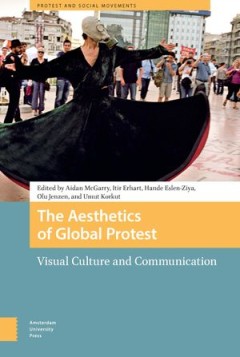
The Aesthetics of Global Protest Visual Culture and Communication
Protestors across the world use aesthetics in order to communicate their ideas and ensure their voices are heard. This book looks at protest aesthetics, which we consider to be the visual and performative elements of protest, such as images, symbols, graffiti, art, as well as the choreography of protest actions in public spaces. Through the use of social media, protestors have been able to crea…
- Edition
- -
- ISBN/ISSN
- 9789048544509
- Collation
- -
- Series Title
- -
- Call Number
- -
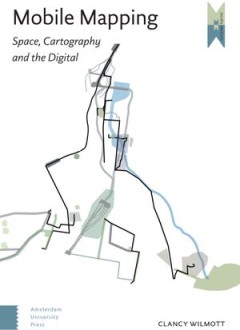
Mobile Mapping: Space, Cartography and the Digital
This book argues for a theory of mobile mapping, a situated and spatial approach towards researching how everyday digital mobile media practices are bound up in global systems of knowledge and power. Drawing from literature in media studies and geography - and the work of Michel Foucault and Doreen Massey - it examines how geographical and historical material, social, and cultural conditions ar…
- Edition
- -
- ISBN/ISSN
- 9789048535217
- Collation
- -
- Series Title
- -
- Call Number
- 302.23 WIL m
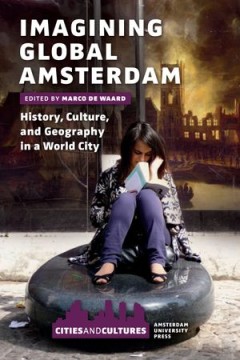
Imagining Global Amsterdam
Imagining Global Amsterdam brings together new essays on the image of Amsterdam as articulated in film, literature, art, and urban discourse, considered within the context of globalization and its impact on urban culture. Subjects include: Amsterdam’s place in global cultural memory; expressions of global consciousness in Amsterdam in the ‘Golden Age’; articulations of Amsterdam as a tole…
- Edition
- -
- ISBN/ISSN
- 9789089643674
- Collation
- -
- Series Title
- -
- Call Number
- 301 WAA i
 Computer Science, Information & General Works
Computer Science, Information & General Works  Philosophy & Psychology
Philosophy & Psychology  Religion
Religion  Social Sciences
Social Sciences  Language
Language  Pure Science
Pure Science  Applied Sciences
Applied Sciences  Art & Recreation
Art & Recreation  Literature
Literature  History & Geography
History & Geography